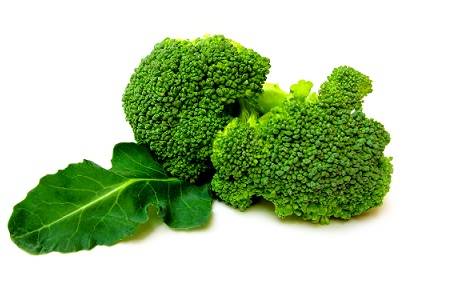Antioxidants are substances which neutralize free radicals. Free radicals are produced in the cell as a by-product of oxygen combustion and other processes.
If there are too many free radicals in your organism, these unstable molecules can damage various parts of the cell and cause changes / mutations.
Navigation:
Antioxidants and free radicals
How are free radicals formed
Issues caused by free radicals
How to fight off free radicals
A list of antioxidants
Beta carotene
Vitamin A
Vitamin C
Vitamin E
Selenium
Glutathione
Indoles
Lycopene
Ubinikol-10
Quercetin
Resveratrol
A short background
First, here is a little background on oxidation and free radicals. Free radicals are not that bad, just like cholesterol is not. In fact, organism needs free radicals (in smaller, normal amounts).
Free radicals are used for attacking and destroying bacteria and viruses that would otherwise cause damage to organism. Also, with help of free radicals vital hormones are produced and several enzymes are activated – both very much needed for the life as we know it. Problem arise only when there is an excessive amount of free radicals in your body. Antioxidants are used to fight off free radicals and disabled them before they do harm.
How are free radicals formed?
Free radicals are generated constantly. Digestion and breathing causes the formation of free radicals. Functioning of immune system and intense physical exercise also generates free radicals. Their quantity is also increased under the influence of various factors, such as:
- radiation,
- air pollution,
- stress,
- alcohol,
- smoking,
- excessive consumption of processed foods,
- aging,
- intense exercise.
Human organism is able to neutralize free radicals (when the amount of these molecules does not exceed normal level) in two ways – by producing its own antioxidants (superoxide dismutase enzyme) and by making use of antioxidants that are provided to the organism with food.
Issues caused by free radicals
If there are too many free radicals in your organism, cells might get damaged. In 1987, Annals of Internal Medicine published a list of issues/diseases caused by free radicals. These are the following:
- aging (lower immunity, diseases associated with aging),
- cancer,
- arthritis,
- heart disease,
- amyloid disease,
- autoimmune disease,
- cataract,
- retinopathy,
- Parkinson’s disease.
How to fight off free radicals?
Your organism can neutralize free radicals with the help of antioxidants. The most important antioxidants are the following:
Are antioxidants needed?
By eating diverse food and following a proper diet, organism is provided with sufficient amount of antioxidants. In some cases (for example when exposed to stress, radiation, air pollution, cigarette smoke / smoking, if you consume too much processed food…), organism needs more antioxidants.
You can provide your organism with antioxidants by consuming antioxidant rich foods or by consuming supplements that are rich in Vitamin A, C and E as well as beta-carotene and selenium. Omega 3 supplements are a good choice as well.
 Broccoli, along with green tea, dark chocolate and red wine, is one of the most powerful and well known antioxidants.
Broccoli, along with green tea, dark chocolate and red wine, is one of the most powerful and well known antioxidants.
A list of antioxidants
Vitamin A, C and E along with beta-carotene and selenium are the most powerful antioxidants. Sufficient amounts of vitamins A, C and E, beta-carotene and selenium are necessary for the proper functioning of cells. Otherwise, free radicals can cause abnormalities in cells and tissues, leading to complications / disease.
Below is the list of antioxidants and a short description of their function.
Beta-carotene
Beta-carotene is an antioxidant that later transforms into Vitamin A. Beta-carotene has the following positive attributes:
- Enhances the immune system,
- may prevent development of cancer,
- helps in formation of healthy sperm.
Beta-carotene can be found in the following foods:
- green leafy vegetables,
- carrots,
- sweet potatoes,
- pumpkin,
- spinach,
- apricots,
- peaches,
- melons,
- peppers (green, yellow and red peppers).
Vitamin A
Vitamin A is a powerful antioxidant that protects cells from free radicals and the damage caused by these unstable molecules.
It also:
- Keeps the skin moist and healthy,
- protects the surface layer of the skin, the lining of the esophagus, intestines and kidneys,
- strengthens the immune system,
- improves vision.
Vitamin A can be found in the following foods:
- Eggs,
- milk,
- liver,
- carrots,
- spinach,
- apricots.
Vitamin C
Vitamin C is a powerful antioxidant that protects cells from free radicals and the damage caused by these unstable molecules.
It also:
- Protects collagen,
- supports the immune system,
- controls the amount of sugar in the blood,
- prevents thickening of blood,
- protects the eyes from ultraviolet rays,
- protects against cardiovascular diseases,
- prevents the accumulation of cholesterol on artery walls,
- improves lung function,
- enhances the ability of organism to absorb iron,
- is involved in the production of hormones (epinephrine and corticosteroids) that reduce stress and inflammation.
Vitamin C can be found in the following foods:
- Papaya,
- kiwi fruit,
- orange,
- melon,
- mango,
- citrus fruits,
- peppers (red or green),
- broccoli,
- sprouts,
- peas.
Vitamin E
Vitamin E is a powerful antioxidant that protects cells from free radicals and the damage caused by these unstable molecules.
It also:
- Prevents aging,
- prevents cell death,
- important for the development and maintenance functions of the nervous and muscular system.
Vitamin E can be found in the following foods:
- Vegetable oils,
- green leafy vegetables,
- wholesome cereals,
- eggs,
- nuts.
Selenium
antioxidant that protects cells from free radicals and the damage caused by these unstable molecules.
It also:
- Protects the liver,
- protects the body from harmful effects of pollution,
- helps protect against cancer,
- helps protect against heart disease.
Selenium can be found in the following foods:
- Yolk,
- seafood,
- poultry,
- liver,
- shellfish,
- garlic,
- onions,
- broccoli,
- asparagus,
- tomatoes,
- seeds,
- nuts.
Other effective antioxidants are also:
Glutathione Best sources of glutathione are avocado, watermelon, asparagus, red berries, peaches, potatoes, pumpkin, cauliflower, broccoli, oranges and grapefruit, tomatoes, meat (for example veal steaks)
Indoles Best sources of indoles are broccoli, cauliflower, brussels sprouts, radishes, cabbage, turnips.
Lycopene Best sources of lycopene are tomatoes, watermelon, grapefruit.
Ubinikol-10 Best source of this coenzyme are mackerel, sardines, peanuts, walnuts, and soybeans.
Quercetin Best sources of quercetin are red and yellow onions, red grapes, squash and broccoli.
Resveratrol Best sources of resveratrol is tea (green tea), coffee, soy, fruit, olive oil, chocolate (dark chocolate), cinnamon, oregano and red wine.
Flavonoids: found in citrus fruits, tea leaves, onions, apples, red wine, chocolate.
Anthocyanins: found in eggplant, grapes and berries.
Catechins: found in tea leaves, red wine, chocolate.
Sulfur compounds: found in garlic, onion, wild garlic.
Lutein and zeaxanthin: found in corn, lettuce, spinach.
Isoflavonoids: found in soy, beans, peas, chickpeas.
Polyphenols: found in thyme and oregano.
Coenzyme Q: found in tissues and membranes.
Conclusion
A modern pace of life is very fast. Nowadays, food contains up to 90% less vitamins and minerals than it did 20 years ago. This is mostly due to the use of pesticides and other chemicals in farming.
Consumption of processed foods, preservatives and flavor enhancers, along with smoking, excessive alcohol consumption and stress significantly increases the production of free radicals and may cause cardiovascular disease, high blood pressure, elevated blood sugar and obesity.
Avoid stress, consume less or no processed foods, quit smoking and eat food that is rich in vitamins and minerals to avoid possible complications caused by excessive amount of free radicals in your body. Neutralize free radical before these molecules cause harm.










































[…] Free radicals in your body have a negative implication on your health. One such implication is the early onset of aging. Luckily, there are some ways to manage that. One such way is the use of hemp oil to clear these free radicals. Taking a few drops of such oil has been established to bring incredible results. […]
[…] is also full of antioxidants, so great for preventing cancer. Coffee is also great for curving your appetite. So in moderation, […]
[…] antioxidant that can be found in papaya is Zeaxanthin that protects our eyes from harmful light rays. Also, a […]
[…] Vitamin C acts as a powerful antioxidant that strengthens your immune system. The amount of vitamins in green tea depends on quality of the product and preparation of the drink itself. […]
[…] vitamin C found in citrus fruit is essential for your overall health, and it can also treat your allergy […]
[…] Brightly colored vegetables, such as carrots and peppers, and fruits like blueberries and cherries. These fruits are full of antioxidants. […]
[…] You should consume foods that are rich in omega 3 fatty acids. Certain vitamins found in salad can only be used by your body if they are consumed in combination with fat (fat-soluble). For example Vitamin E. […]
[…] know is that this nutritional powerhouse is supercharged with cellulite fighting nutrients such as vitamin C, potassium, and […]
This is a nice blog. The information you have posted in your blog is mind blowing and excellent. You have described about powerful antioxidants. It is really good for health.